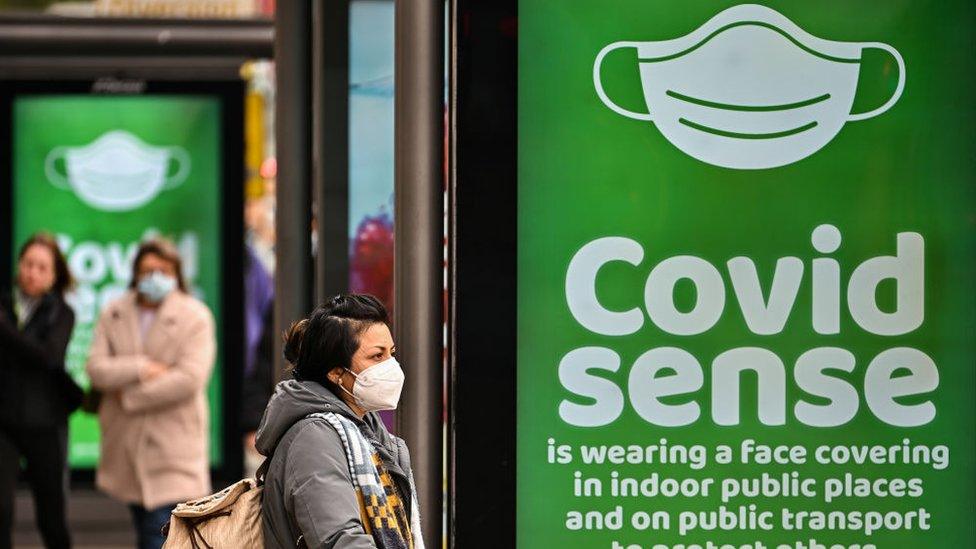Covid in Scotland: Restrictions are working, insists adviser
- Published
- comments
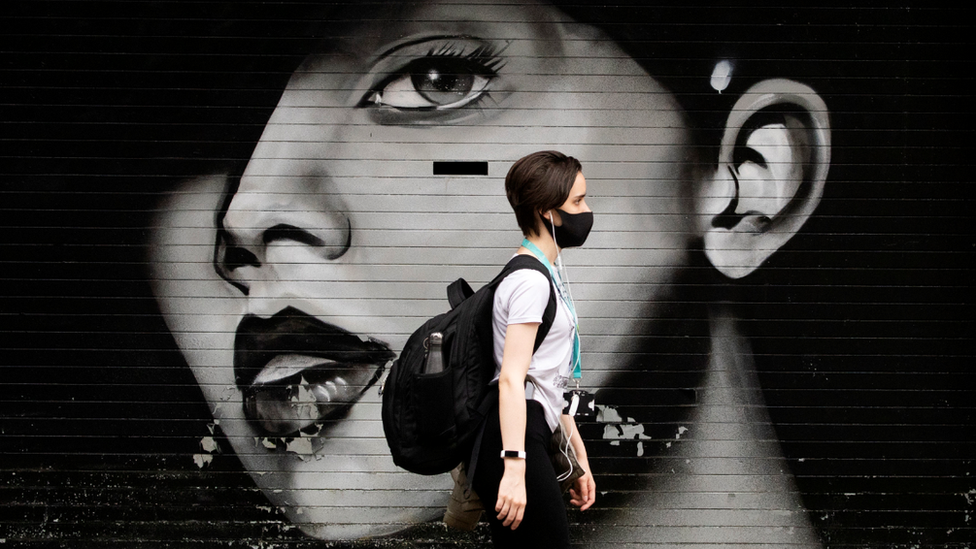
The Covid restrictions in place across Scotland are helping to reduce the spread of the Omicron variant, a government adviser has said.
An update on the current restrictions will be given by First Minister Nicola Sturgeon at Holyrood on Tuesday.
But national clinical director Prof Jason Leitch says measures such as the closure of nightclubs are making a difference.
The Scottish government has faced criticism that the rules are too tough.
The latest Scottish government Covid report, external shows average daily cases in Scotland (2,824 per one million population in the week to 6 January) was higher than in England (2,615 per one million) which has fewer Covid restrictions.
But Prof Leitch points out that Scotland's rates are well below Wales and Northern Ireland, adding that it is the "worrying" increases in Covid hospitalisations which should be the focus.
Speaking on BBC Radio's Good Morning Scotland programme, he said the restrictions regime in place "is protecting people" despite the scale of infection rates.
He added: "Should we still be protecting the public from these case rates if they are just going to go anyway?
"I think yes is the answer to that. I think the protections reduce the size of the wave and they also potentially elongate the wave to allow you to get more people vaccinated and spread the hospitalisations and intensive care cases out over a longer period.
"That's got to be good. Now that is not always good if you own a pub or a nursery and people are having to self-isolate, so it's a real balance in there between the number of cases, the numbers off work but I still think it is the right thing to do to try and reduce that case rate."
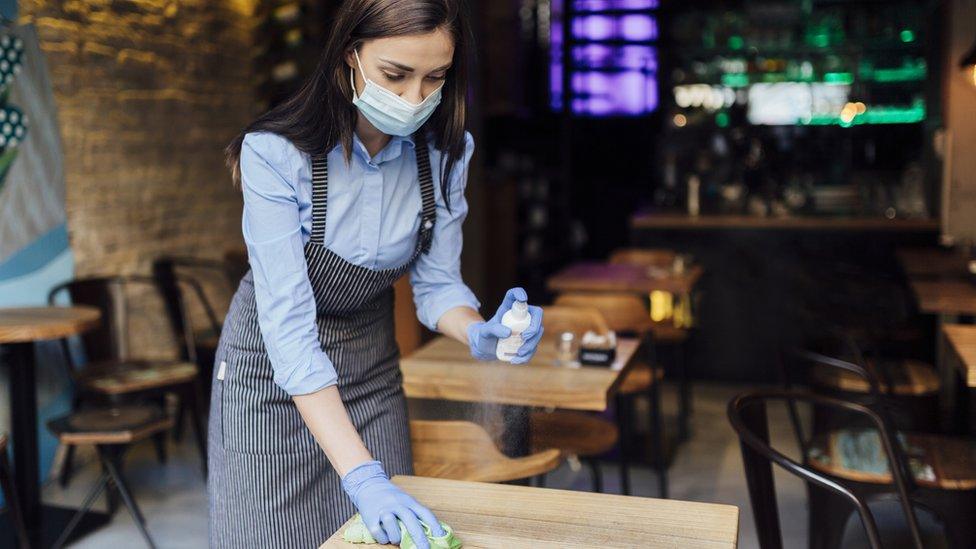
The hospitality trade has been required to introduce a raft of changes as part of the latest Covid restrictions which are in force until 17 January
Prof Leitch also revealed ministers will begin giving out separate figures for positive Covid cases caught on both lateral flow and PCR tests.
This follows changes announced last week which mean people who have no symptoms but record a positive lateral flow test result will no longer have to go for a PCR test.
Peter Duthie, chief executive of the Scottish Event Campus in Glasgow, told BBC Scotland his business has lost about £2m in revenue as a result of the latest restrictions with events such as the Irn Bru Carnival, which would have attracted 150,000 people in the post-Christmas period, curtailed.
He said: "It's been a hugely challenging couple of years for the industry and just when a degree of fragile confidence was returning before Christmas we were then hit by this further lockdown.
"Events matter to people - whether it's sporting events, concerts, live exhibitions - they all play a big part in people's lives.
"We understand it's a challenging situation, what we're looking for is as much clarity as we can get on the circumstances in which we can reopen."
'Activities curtailed'
Meanwhile, Mark Woolhouse, professor of infectious disease epidemiology at Edinburgh University, told Good Morning Scotland that the balance in managing harms throughout the pandemic had not been right.
He said: "I'm concerned why a lot of the evidence - such as the complete lack of necessity to keep us indoors because this virus does not transmit outdoors - was there from very early on and yet somehow, through the scientific advisory systems and the politicians, this didn't get translated into public health action.
"As a result we all spent a lot of time having our activities curtailed for very little effect and far too long in my view."


- Published7 January 2022
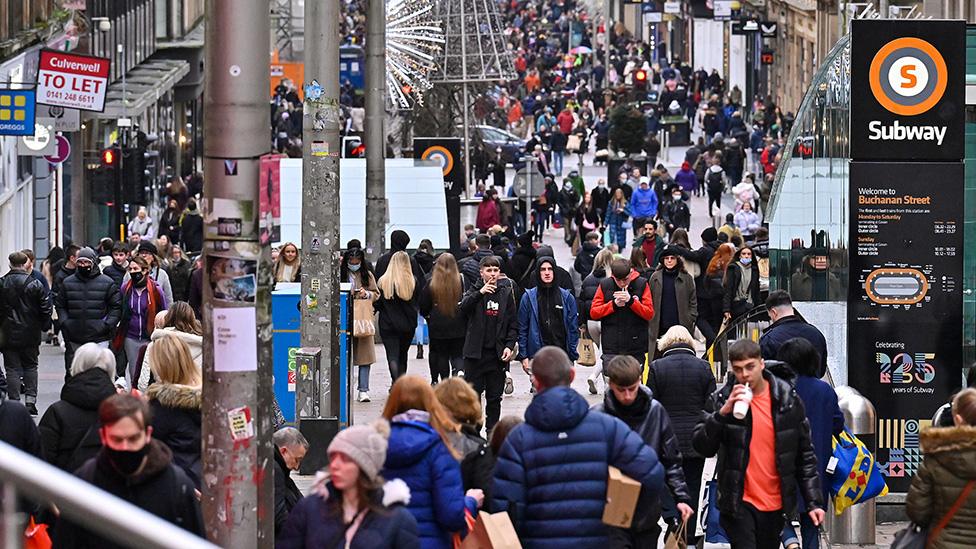
- Published5 January 2022
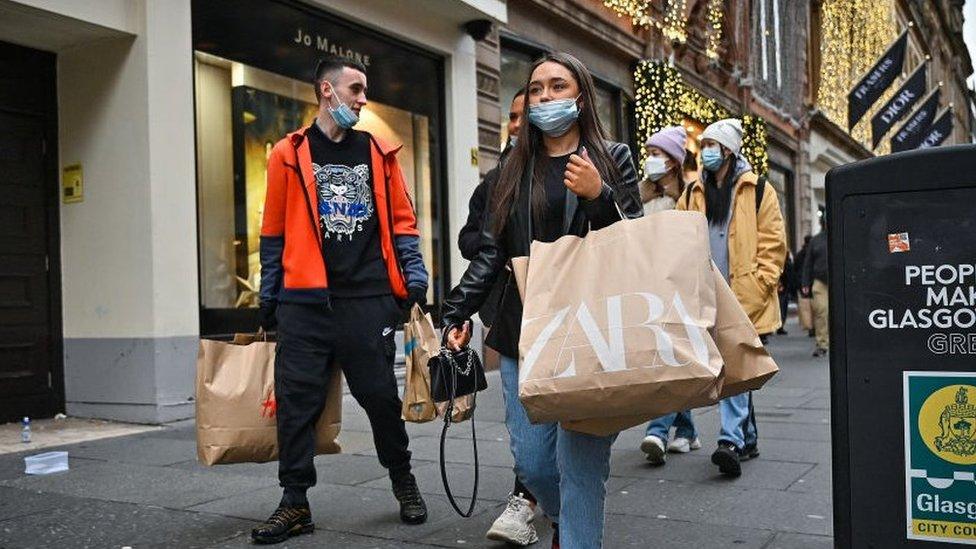
- Published8 January 2022
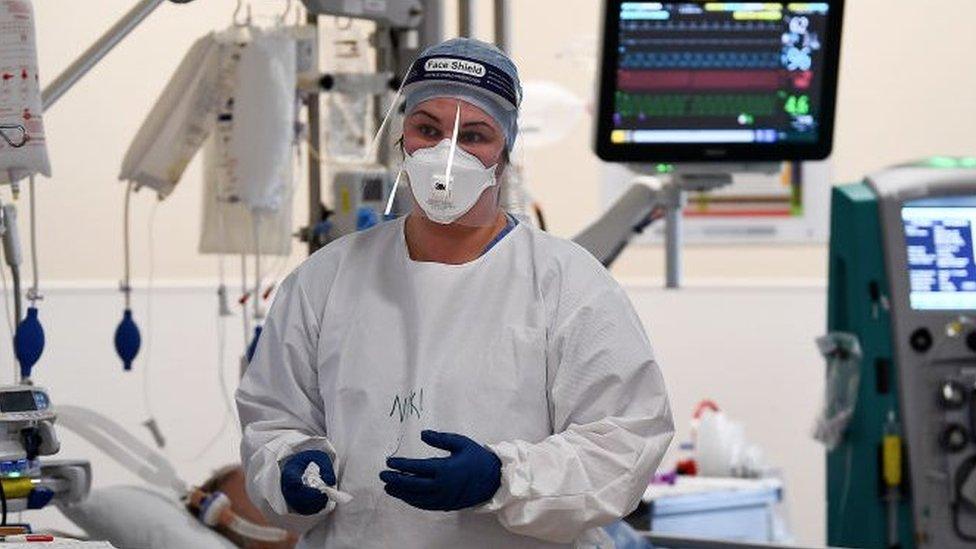
- Published1 July 2022
